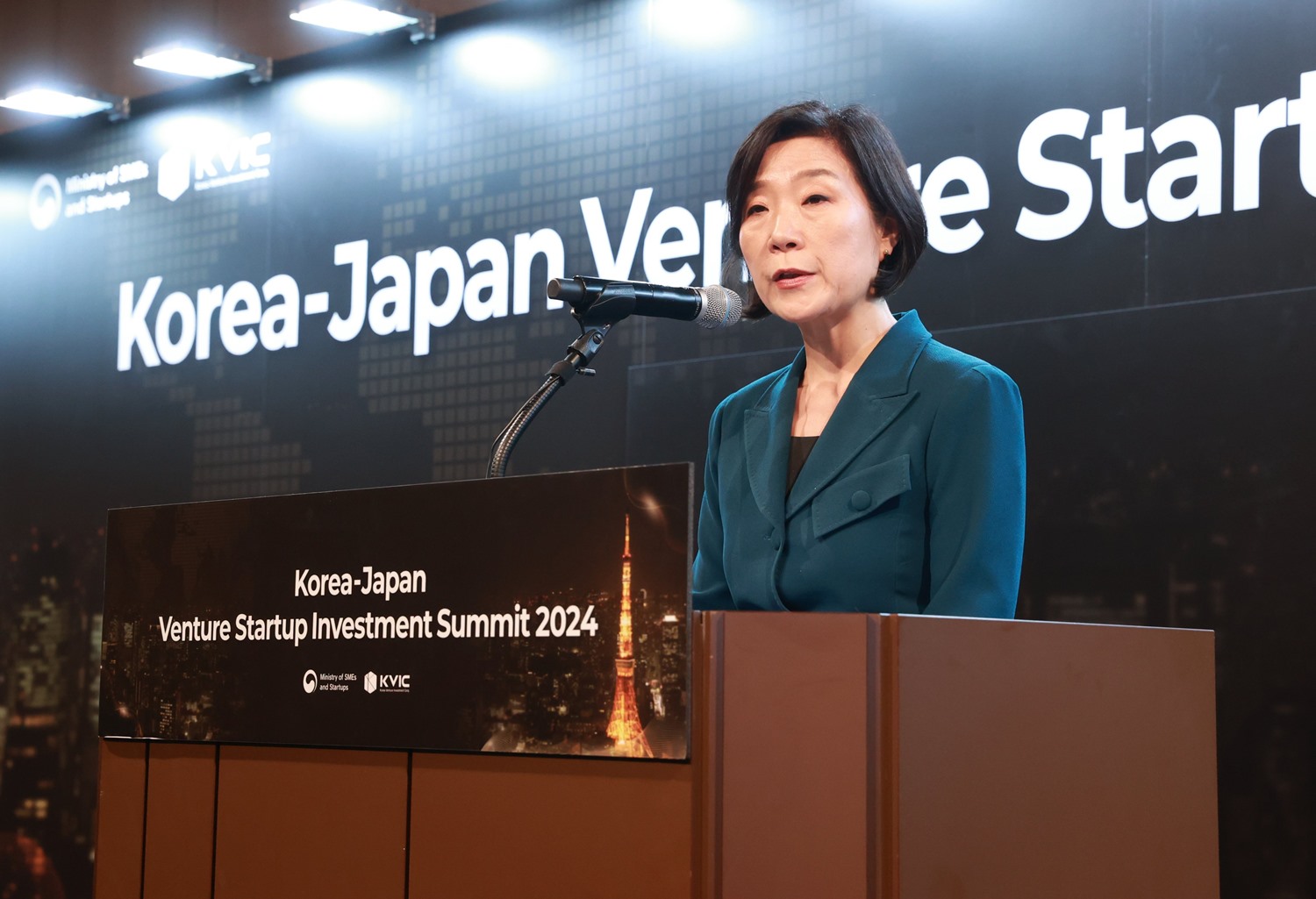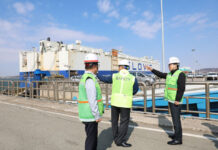
The Ministry of SMEs and Startups on May 13 told an emergency meeting of economy-related ministers chaired by Deputy Prime Minister and Minister of Economy and Finance Choi Sang-mok that investment in domestic venture companies in the first quarter jumped 6% from the same quarter last year. Shown is Minister of SMEs and Startups Oh Youngju on May 10 delivering the opening speech at the 2024 Korea-Japan Startup Investment Summit at Toranomon Hills Mori Tower in Tokyo, Japan. (Ministry of SMEs and Startups)
By Xu Aiying
The first-quarter rise in domestic venture investment clearly shows how the sector is showing faster recovery than those in advanced economies such as the U.S. and U.K.
At an emergency meeting of economy-related ministers chaired by Deputy Prime Minister and Minister of Economy and Finance Choi Sang-mok, the Ministry of SMEs (Small and Medium Enterprises) and Startups on May 13 announced its plan to assess and respond to such investment including related trends and formation of related funds in the first quarter.
Venture investment in the first quarter rose 6% to KRW 1.9 trillion, with the amount of venture funds surging 42% to KRW 2.4 trillion.
Investment in domestic venture businesses showed stronger recovery than those in advanced economies such as the U.S. and U.K. If converted to USD, Korea’s figure rose 15% in the first quarter from the same period in 2020 before the outbreak of the COVID-19 pandemic, far exceeding the performance of the U.S. (minus 10%) and U.K. (minus 8%) over the same period.
The increase in domestic venture investment was led by so-called deep-tech startups that own deep technologies. Thanks to favorable investment in such startups especially those in aerospace, artificial intelligence and robotics, the share of startup investment in the top 10 deep-tech sectors rose from 31% late last year to 40%.
“Growth of domestic venture investment will likely continue but a closer eye is needed on lingering uncertainties such as fears over the persistence of high interest rates,” the ministry said. “Despite uncertainty in and out of the country, we will support such growth in multifaceted ways to ensure stable growth of the venture investment market.”
To this end, the ministry will provide multifaceted support for stable market growth by providing information on returns on venture fund management, creating a fund worth KRW 1 trillion to support ventures in non-metropolitan areas, and running programs like K-global Star to promote leading domestic venture companies selected by Korean and foreign venture capital to international investors.
“We’ll do our best to secure growth engines for the Korean economy by checking market conditions and using timely policy measures,” Minister of SMEs and Startups Oh Youngju said. “We will also closely communicate with the industry to prepare comprehensive steps to seamlessly revitalize venture investment.”
xuaiy@korea.kr























